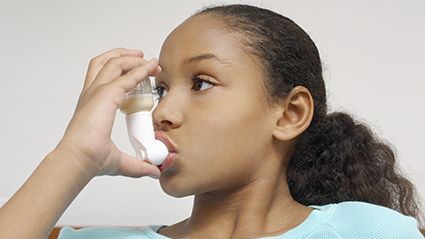
Call it a silver lining of the pandemic: Asthma attacks fell sharply among Black and Hispanic Americans in the months after the coronavirus first surfaced.
The study included nearly 1,200 participants who provided information about their asthma through monthly online, phone or mail questionnaires for 15 months between the first half of 2019 and first half of 2020.
The researchers found an overall 40% decrease in asthma attacks between winter (Jan. 1 to March 31) and spring (April 1 to June 30) 2020, compared to the same time period in 2019.
Patients with the largest decreases (a 65% drop) included those who worked outside of the home when they first enrolled in the study, and those with a type of asthma triggered by environmental irritants such as pollution, smoke or ozone, rather than allergens such as dust mites or mold.
The study was published online recently in The Journal of Allergy & Clinical Immunology: In Practice.
“We found a substantial decrease in asthma exacerbation — on the order of what we see for biologic therapies for severe asthma,” said lead author Justin Salciccioli, a fellow in the division of pulmonary and critical care medicine at Brigham and Women’s Hospital, in Boston.
The most likely reason for the sharp drop in asthma attacks is decreased exposure to allergens such as pollen, dust mites and mold, as well as viruses like influenza, Salciccioli and colleagues said.
In addition, COVID-19 pandemic measures such as wearing masks and physical distancing may also have helped reduce exposure to asthma triggers.
The study included only Black and Hispanic Americans, but their rates of asthma attacks and hospitalizations are twice that of the general U.S. population, the researchers noted.
“This is the first study to assess asthma exacerbation before and after the COVID-19 pandemic using data that are unlikely to be affected by patients avoiding the health care system,” Salciccioli said in a hospital news release.
“Because this was part of a prospective trial that started before the pandemic and was planned to be remote, it gave us a unique window into how changes during the pandemic may have led to a dramatic decrease in asthma exacerbation,” he explained.
More information
The U.S. Centers for Disease Control and Prevention has more on COVID-19 and asthma.
SOURCE : Brigham and Women’s Hospital, news release, May 6, 2020
Source: HealthDay

Leave a Reply